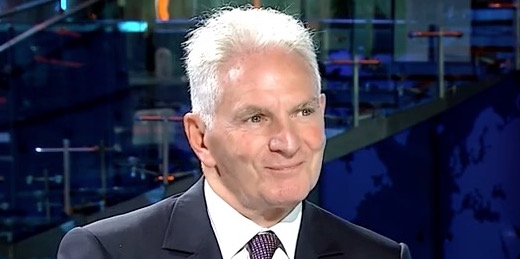Following the Dubai Eye interview (22 Feb 2017), Reuters published a related article titled “Aramco IPO could push other Gulf states to list oil assets: economist“, which appeared on its website on 23 Feb 2017; the article is posted below.
Another version was published on Gulf Business and can be accessed here.
Saudi Aramco’s initial public offering (IPO) could encourage other Gulf countries to list their oil assets, a leading regional economist said, but the oil giant must clear uncertainties over taxation, OPEC policy and ownership of crude.
Nasser Saidi, a former economy minister of Lebanon, told Dubai Eye Radio in an interview broadcast on Wednesday that Aramco has to address how the company will separate its assets and liabilities from those of the state.
“Many countries could follow in the region. (The) UAE I think could potentially be attracted to this,” Saidi said.
“We have long discussed the possibility that well-performing state enterprises could be listed, and potentially this could open the road for that,” Saidi, also a former chief economist and head of external relations at the Dubai International Financial Centre, added.
While Aramco is the world’s largest oil firm, the United Arab Emirates, Kuwait and Qatar also hold major oil assets that are managed by state companies.
The listing of Aramco IPO-ARMO.SE, expected to be the world’s biggest IPO and raise tens of billions of dollars, is a centerpiece of the Saudi government’s ambitious “Vision 2030” plan to diversify the economy beyond oil.
When the plan was announced in June last year, it pledged to “transform Aramco from an oil-producing company into a global industrial conglomerate”, although Saudi officials still debate the shape the company should take.
The Saudi government plans to list up to 5 percent of Aramco next year on the local bourse and international stock markets.
The proceeds will be used to invest in other sectors likely to create jobs for young Saudis.
But for the plan to succeed, Saidi said Aramco must address issues related to governance, transparency and “who owns the natural resource wealth of Saudi Arabia”.
“The big issue really is one of public finances and separating out private ownership from public and state ownership,” he added.
Saidi also pointed to questions concerning the 20 percent royalty and 85 percent tax that Aramco pays to the government, which many investors believe could lower its value in an IPO.
“There is a lot of uncertainty as to what sort of taxation regime will be applied to Aramco, whether or not resources under the ground will be included and how do you separate out those from those above and other activities,” he said.
This could lead to other questions on Saudi Arabia’s leading role in the Organization of the Petroleum Exporting Countries, which sets production targets and allocates them among members.
“What happens if you have a board? Are you going to separate out political decision-making … from that which is in the best interest of Aramco?” he said.
Comments on Saudi Arabia's upcoming Aramco IPO in Reuters & others, 24 Feb 2017
24 February, 2017
read 2 minutes
Read Next
TV and radio
Bloomberg’s Horizons Middle East & Africa Interview, 17 Jul 2024
Aathira Prasad joined Joumanna Bercetche on 22nd July, 2024 as part of the Horizons Middle
18 July, 2024
media page
“A GCC spaceport could bring galactic gains”, Op-ed in Arabian Gulf Business Insight (AGBI), 4 Jul 2024
The opinion piece titled “A GCC spaceport could bring galactic gains” was published in the
5 July, 2024
media page
“Central Bank Digital Currencies: Will they replace the cash in our wallets?”, Op-ed in The National, 30 Jun 2024
The article titled “Central Bank Digital Currencies: Will they replace the cash in our wallets?”
30 June, 2024






